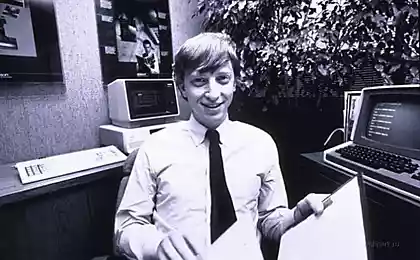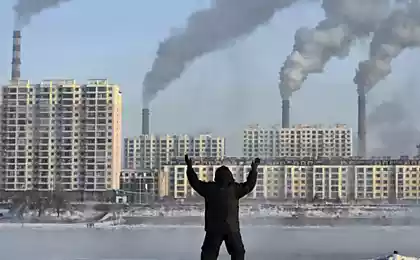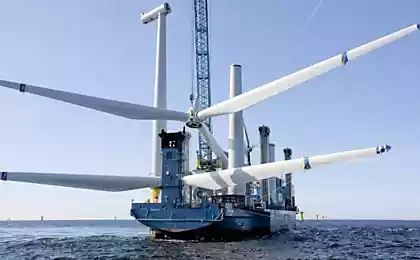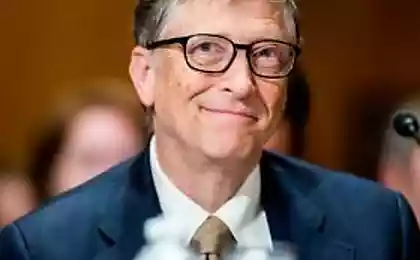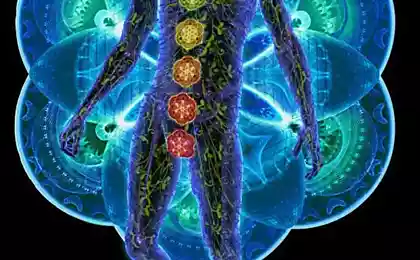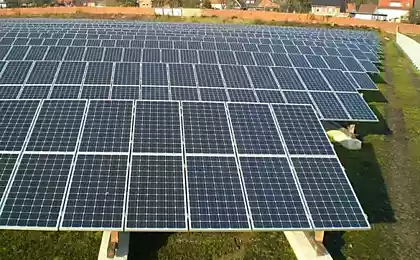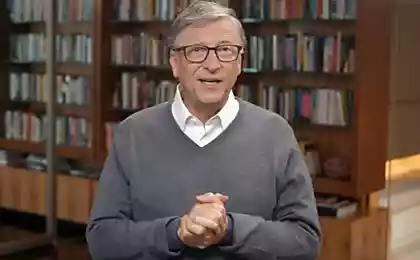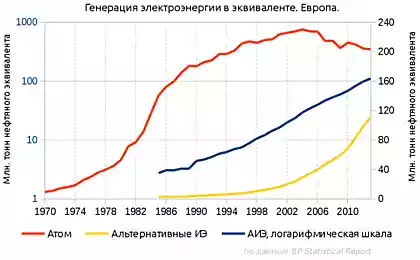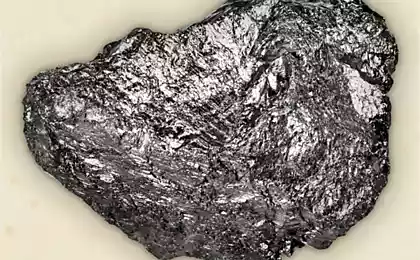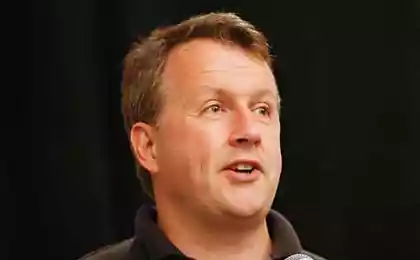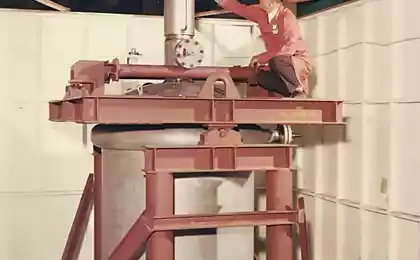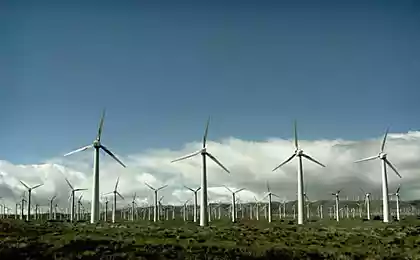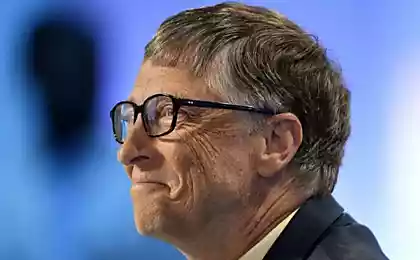277
Bill Gates: Why I'm investing $1 billion in clean energy
In June 2015, Bill Gates announced plans to double investments in green energy to two billion dollars. The funds will be used to research global climate change and develop alternative energy sources. Gates has already invested nearly a billion dollars in renewable energy startups, which are connected to new types of batteries, nuclear power, capture and store CO2 directly from the atmosphere.
In an article on Quartz, Bill Gates explained why he is investing his own money in clean energy research.
Bill Gates will invest a billion dollars in clean energy over the next five years. This is a significant increase in investment, but the businessman believes that the next five years will bring many breakthroughs in science that can solve the problems of climate change. In 2010, Gates spoke at TED about the need to equip all sectors of the economy with energy resources that do not emit carbon dioxide into the atmosphere. When it comes to averting the worst effects of climate change, my investments are far less important than the policies that governments are pursuing. Climate change will affect most people in the poorest countries – those with the least impact on the environment. Higher temperatures and less predictable weather will affect the lives of farmers who may be left without food due to lack of harvest. Technology and production to improve our lives will cause poverty and disease.
Green energy will not only mitigate the effects of climate change, but also fight poverty. The high cost of energy has a huge impact on life in the poorest countries, according to the experience of the Bill and Melinda Gates Foundation.
Bill Gates sees progress in energy. Many countries have changed their policies and are deliberately reducing greenhouse gas emissions. The cost of solar panels has decreased by almost ten times in ten years, and batteries for storing energy from the sun or wind have become more powerful and less expensive.
Since 2007, the United States has reduced its greenhouse gas emissions by 10%, and since 1990, Germany has reduced its energy sector emissions by 20%. The European Commission plans to raise the level of electricity generation from alternative sources to 27% by 2030 – in 2014, wind power plants in the European Union generated 8% of all energy needed. World leaders will discuss a plan for global emissions reductions at the COP21 Climate Change Conference in Paris in December 2015.
Scientists agree that to prevent the worst effects of climate change, it is necessary to prevent temperature rises to two degrees Celsius. To do this, the largest producers of greenhouse gases must reduce emissions by 80% by 2050. Today, advances in science cannot reduce emissions as effectively. Wind and solar energy should now have a reserve for windless days and nights – it needs fossil fuels. Wind and solar farms need much more space: to provide the energy output of a thermal power plant, a wind farm must occupy ten times the area.
These problems can be solved, Bill Gates said. We need to create the right ecosystem for innovation to spur progress.
To create the future, we need to take several steps:
Why should the government spend money on basic research? For the same reason commercial companies don't need it: for the good of society. Society will benefit much more than the inventor, money. A good example is the Internet: it is difficult for us to imagine life without it, but no commercial company could create it.
If governments start investing more money in research in this area, it will attract private investment. Private capital will allow new companies to enter the market. We need hundreds of companies working on thousands of ideas, including the craziest. No one knows which of these technologies will be the most efficient and scalable.
Bill Gates has invested in companies working on new batteries and storage methods on solar energy projects. The funds went to a company that is developing new, more efficient ways to use nuclear power. If governments increase their budgets, not only will I increase investment, but so will many other investors.
The authorities need to rush this step: today, renewables occupy less than 5% of the market, and it will take years to switch to them.
The next steps depend on the upcoming COP21 Conference. Bill Gates writes that during his lifetime, humans have defeated smallpox and reduced child mortality by four times, digital technology has changed people’s lives. He is confident that humanity will be able to completely eliminate CO2 emissions from energy and industry, if we work in this direction. P.S. And remember, just by changing your consciousness – together we change the world!
Source: geektimes.ru/post/259896/
In an article on Quartz, Bill Gates explained why he is investing his own money in clean energy research.
Bill Gates will invest a billion dollars in clean energy over the next five years. This is a significant increase in investment, but the businessman believes that the next five years will bring many breakthroughs in science that can solve the problems of climate change. In 2010, Gates spoke at TED about the need to equip all sectors of the economy with energy resources that do not emit carbon dioxide into the atmosphere. When it comes to averting the worst effects of climate change, my investments are far less important than the policies that governments are pursuing. Climate change will affect most people in the poorest countries – those with the least impact on the environment. Higher temperatures and less predictable weather will affect the lives of farmers who may be left without food due to lack of harvest. Technology and production to improve our lives will cause poverty and disease.
Green energy will not only mitigate the effects of climate change, but also fight poverty. The high cost of energy has a huge impact on life in the poorest countries, according to the experience of the Bill and Melinda Gates Foundation.
Bill Gates sees progress in energy. Many countries have changed their policies and are deliberately reducing greenhouse gas emissions. The cost of solar panels has decreased by almost ten times in ten years, and batteries for storing energy from the sun or wind have become more powerful and less expensive.
Since 2007, the United States has reduced its greenhouse gas emissions by 10%, and since 1990, Germany has reduced its energy sector emissions by 20%. The European Commission plans to raise the level of electricity generation from alternative sources to 27% by 2030 – in 2014, wind power plants in the European Union generated 8% of all energy needed. World leaders will discuss a plan for global emissions reductions at the COP21 Climate Change Conference in Paris in December 2015.
Scientists agree that to prevent the worst effects of climate change, it is necessary to prevent temperature rises to two degrees Celsius. To do this, the largest producers of greenhouse gases must reduce emissions by 80% by 2050. Today, advances in science cannot reduce emissions as effectively. Wind and solar energy should now have a reserve for windless days and nights – it needs fossil fuels. Wind and solar farms need much more space: to provide the energy output of a thermal power plant, a wind farm must occupy ten times the area.
These problems can be solved, Bill Gates said. We need to create the right ecosystem for innovation to spur progress.
To create the future, we need to take several steps:
- Create incentives for innovation
Why should the government spend money on basic research? For the same reason commercial companies don't need it: for the good of society. Society will benefit much more than the inventor, money. A good example is the Internet: it is difficult for us to imagine life without it, but no commercial company could create it.
If governments start investing more money in research in this area, it will attract private investment. Private capital will allow new companies to enter the market. We need hundreds of companies working on thousands of ideas, including the craziest. No one knows which of these technologies will be the most efficient and scalable.
Bill Gates has invested in companies working on new batteries and storage methods on solar energy projects. The funds went to a company that is developing new, more efficient ways to use nuclear power. If governments increase their budgets, not only will I increase investment, but so will many other investors.
The authorities need to rush this step: today, renewables occupy less than 5% of the market, and it will take years to switch to them.
- Develop the market
- The market needs incentives to develop new energy solutions. This requires subsidizing players.
- Helping poor countries
The next steps depend on the upcoming COP21 Conference. Bill Gates writes that during his lifetime, humans have defeated smallpox and reduced child mortality by four times, digital technology has changed people’s lives. He is confident that humanity will be able to completely eliminate CO2 emissions from energy and industry, if we work in this direction. P.S. And remember, just by changing your consciousness – together we change the world!
Source: geektimes.ru/post/259896/
Unusual treat: the ice cream is green with arugula and avocado
On the basis of Nissan LEAF can release a wagon and crossover
